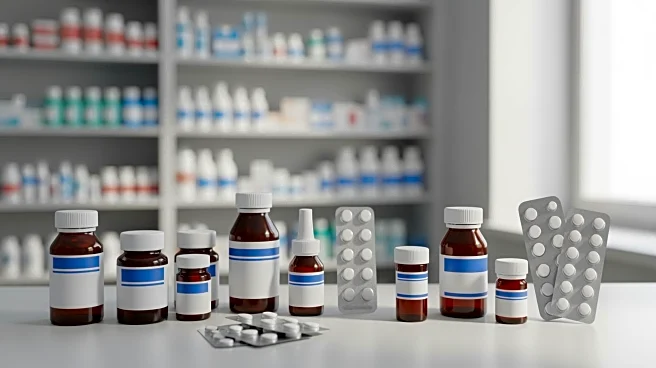What's Happening?
A recent study published in JAC – Antimicrobial Resistance highlights the role of community pharmacies in treating upper respiratory tract infections (RTIs) through over-the-counter (OTC) medicines and
self-care advice. The study analyzed data from 225,615 patients who visited community pharmacies between 2022 and 2024. It found that nearly nine out of ten patients were offered OTC treatments, with pain relief medication, expectorant cough syrups, throat lozenges, and oral decongestants being the most accepted. The use of the TARGET Treating Your Infection leaflet, developed by the UK Health Security Agency and the Royal College of General Practitioners, was incentivized under the Pharmacy Quality Scheme (PQS) to promote antimicrobial stewardship. The study also noted a decrease in patients referred to other healthcare providers, such as GPs, from 12% in 2022/2023 to 7% in 2023/2024.
Why It's Important?
The findings underscore the critical role of community pharmacies in antimicrobial stewardship, particularly in reducing unnecessary antibiotic use. By offering effective OTC treatments and self-care advice, pharmacies help manage RTIs without escalating to antibiotics, thus contributing to the fight against antimicrobial resistance. The financial incentives provided by the PQS have driven significant improvements in this area, highlighting the potential for similar schemes to be implemented nationally and internationally. As pharmacists increasingly take on independent prescribing roles, their impact on preventing inappropriate antibiotic use is expected to grow, necessitating continued investment in resources and training.
What's Next?
The study suggests that community pharmacies will continue to play a vital role in antimicrobial stewardship, with the potential for expanded responsibilities as pharmacists take on more prescribing duties. The ongoing use of resources like the TARGET leaflets will be crucial in maintaining progress. Future efforts may focus on further integrating these practices into pharmacy operations and exploring additional incentives to sustain and enhance the impact on antimicrobial resistance.










